1800-1850: Congressional Power Struggles
Heated Debates
Henry Clay speaks in favor of the Compromise of 1850.
Photograph Source: Public Domain
The first half of the nineteenth century brought the debate over the legality and morality of the institution of slavery to a dramatic climax. As agreed during the Constitutional Convention, in 1808 Congress outlawed the importation of slaves via the Atlantic Slave trade. While this stopped the preponderance of slave ships arriving from Africa, it did not affect plantation slavery, where masters relied on enslaved Black women to replenish their labor source. Nor did the legal change alter the racial hierarchy that whites believed was “God-ordained” and by which they had structured their political, legal, and social dynamics across the states.
Legal Changes in Maryland
Ever conscious of maintaining this hierarchy, Maryland’s state Constitution was amended to restrict voting to white men in 1810. The statute noted, “That every free white male citizen of this state … and no other … shall have the right of suffrage” (Miller, 2015, p. 267). This ensured that any free Black or enslaved persons who had bought their freedom remained disconnected from one of the most basic means of influencing the legal and political decisions made in the state: voting.
“That every free white male citizen of this state … and no other … shall have the right of suffrage.”
- Amended State Constitution of Maryland, 1810
Growing Country, Intensifying Debates
Throughout the nineteenth century, the pro-slavery and anti-slavery factions in Congress debated the morality of the institution. Southern states felt threatened by abolitionist activities fostered in the North. As populations in the West grew and more territories petitioned to be recognized as states, these debates increased. The southern states feared that if states entered as non-slave that this imbalance would put the pro-slavery elements of the government in the minority. Northern states, increasingly convinced of the immorality of slavery, argued vehemently against its continuation. Aside from the racial ideologies that sustained slavery, the South’s entire economy was dependent upon the institution.
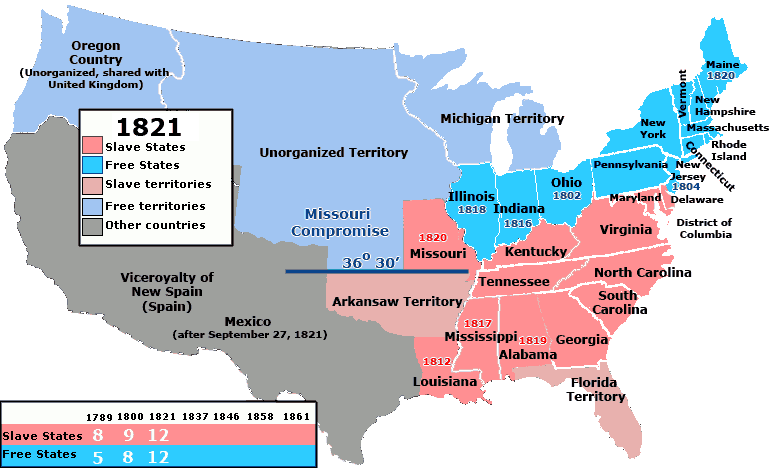
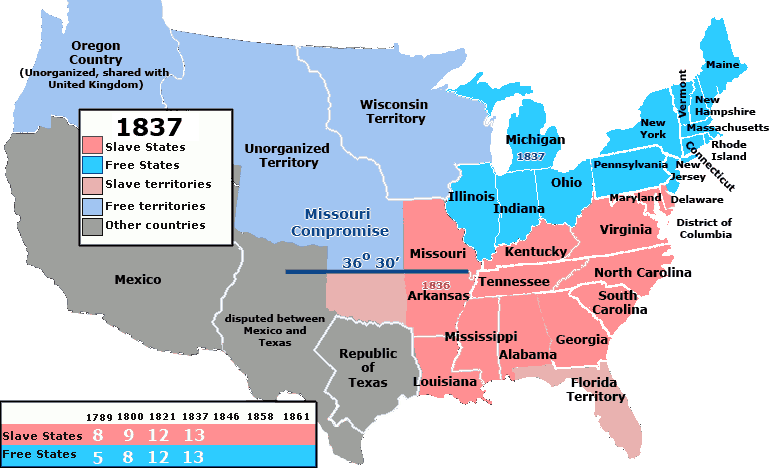
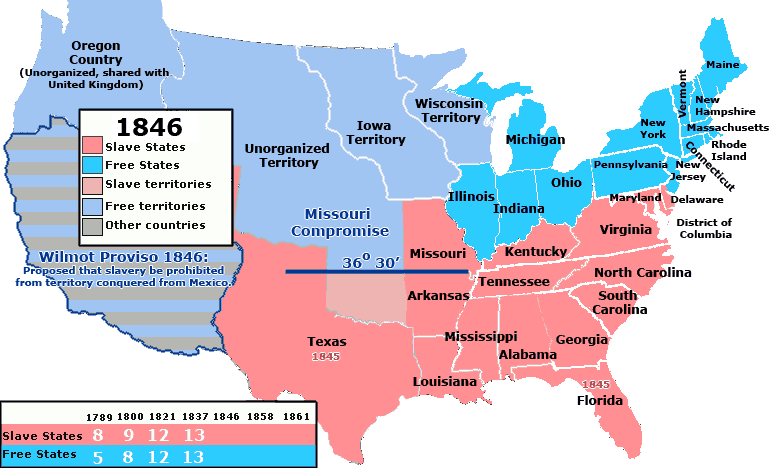
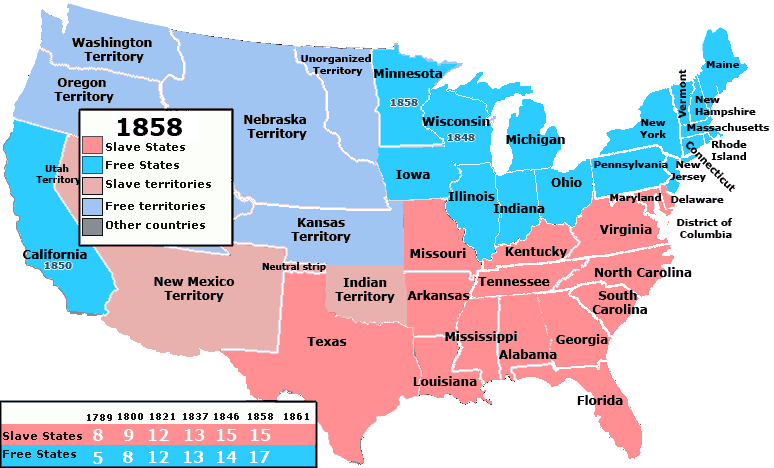
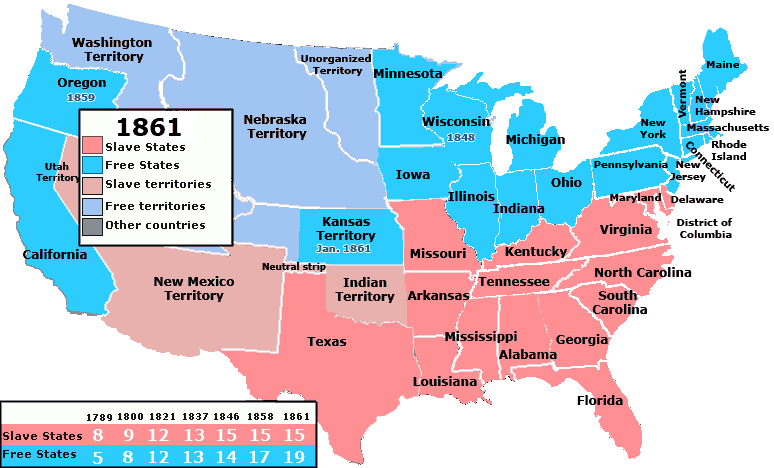
Map showing addition of territories and states and the division between free and slave states.
Source: Wikipedia, Kenmayer
The confrontation, in many ways, pitted morality against economics. As historian Andrew Shankman (Mason and Hammond, 2011) noted, “throughout the long 1820s those conceiving the American System were thoroughly pre-occupied with slavery” (p. 248).